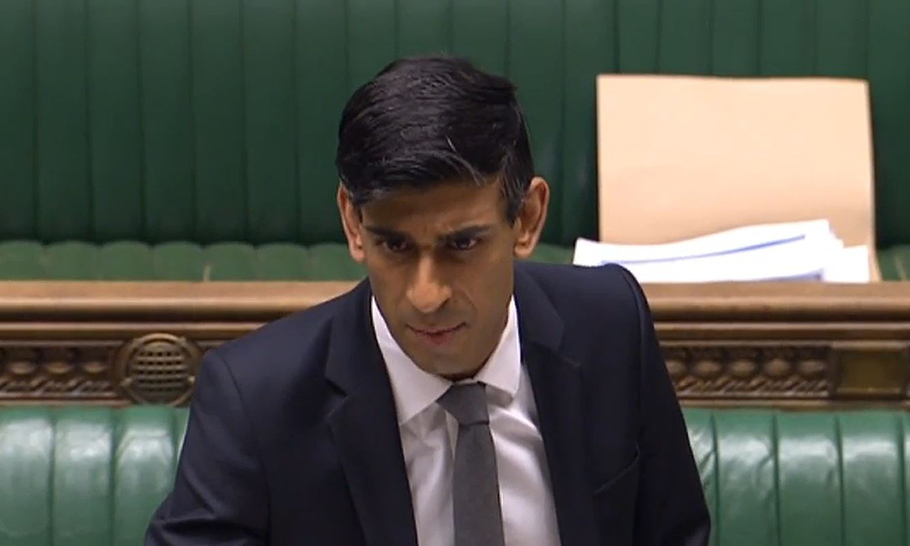Spare a thought for the self-employed — the butcher, the baker, the candlestick-maker

(PA Images)
Do you care about the self-employed? No? Well, perhaps you should — after all, we depend upon their services for just about everything, including the article you are reading now. Almost everyone who contributes to the editorial and financial aspects of TheArticle is self-employed. The same goes for almost the entirety of what one might call the entrepreneurial economy. Those who work for themselves are working for everyone else too.
Long after employees got their bailout, the Chancellor has come up with a plan to rescue Britain’s most enterprising but least protected workforce. Later today, Rishi Sunak is expected to announce a scheme to compensate those of the five million self-employed people who have been left high and dry by the pandemic.
For the Treasury, the self-employed are an afterthought. For Her Majesty’s Revenue and Customs, they are an object of deep and abiding suspicion. Yet hundreds of thousands of these independent businesses have been ruined by social distancing and other restrictions imposed to combat coronavirus. The least the Government can do is to provide those hit hardest by a locked-down economy with “parity of support”, as the Prime Minister has promised all along, to match that offered to employees, whose salaries are to be paid up to a maximum of £2,500.
Hitherto, the unsalaried were simply told to go on the dole at £94 a week; half a million have done so, crashing the Government’s online system. The Chancellor, to his credit, has grasped that this inequitable treatment is not only unfair but unsustainable.
So what does he propose to do about it? Clearly we shall await more detail, but the outline of the new package has emerged. The HMRC already has details of all self-employed people’s incomes and in many cases far more information than it has about other taxpayers. So it should be possible to come up with a “blended” assessment of each person’s income over the past three years, on the basis of which a proportion would be paid up to a certain level designed to exclude high-earners. One suggestion is that compensation should be capped at £1,700 a month and those earning an average of more than £50,000 per annum would not benefit. It is estimated that about two million self-employed people would be eligible for Sunak’s scheme.
Any scheme based on means-testing is inevitably complex, bureaucratic and therefore slow. A much simpler method would be to pay every self-employed taxpayer a fixed sum, a “basic income”. Giving two million people, say, £5,000 would cost £10 billion, but it would tide over a great many small businesses on which we all depend in normal times.
Some would object that this would give the self-employed privileged status. But the £5,000 would be taxable, so it could be clawed back later in the case of the wealthy. In other countries, such schemes are already being enacted. Even the United States is sending a cheque worth $1,200 for every adult earning less than $75,000 a year, plus $500 per child, as part of its $2 trillion coronavirus bailout plan.
There is natural resistance, not least in the Treasury, to handouts of “free money”. But the psychological impact of a one-off payment of this kind would, in the context of the worst economic crisis in our lifetimes, be a tonic for the nation. There is nothing, apart from the cost, to stop the Government extending a basic income far beyond the self-employed. It would cost £100 billion to transfer £5,000 per capita to the bank accounts of the poorest 20 million people in the UK. That may be too much, although the Government has already announced measures costing more than three times that amount. But we have to start somewhere. It is among the self-employed, many of whom have been servicing the “gig economy” on zero hours contracts, where the most urgent need has arisen.
One of our oldest nursery rhymes, which exists in many variations, goes like this:
Rub-a-dub-dub,
Three men in a tub,
And who do you think they be?
The butcher, the baker, the candlestick-maker,
And all of them out to sea.
Well, the butcher, the baker, the candlestick-maker and most of the other self-employed business people of Britain are very much at sea just now. Spare a thought for them today — and let us hope that the Chancellor, the Treasury and the taxman do too.





